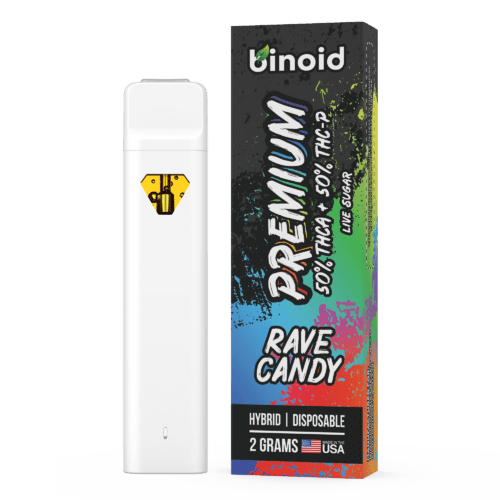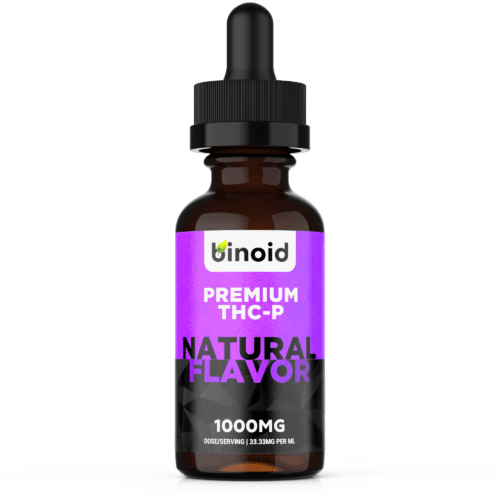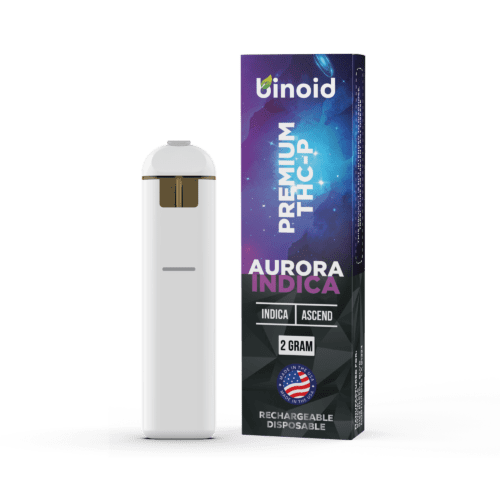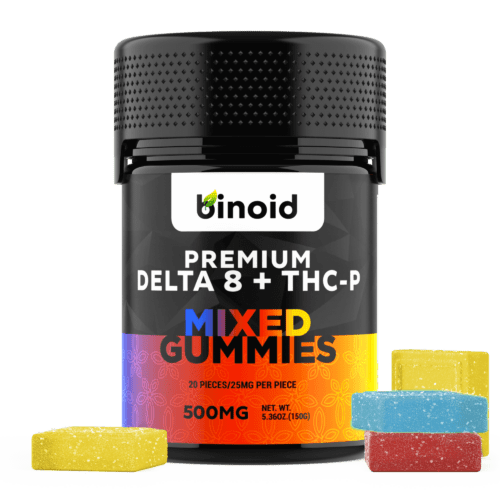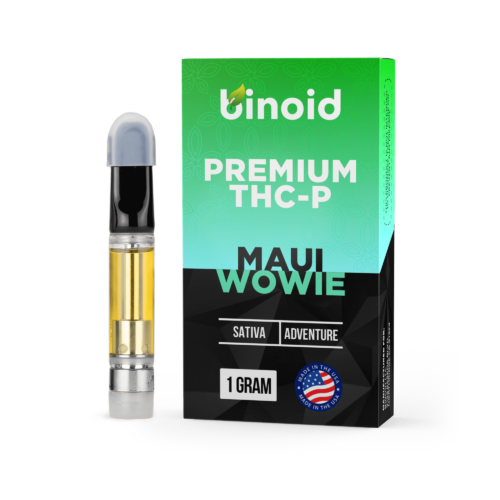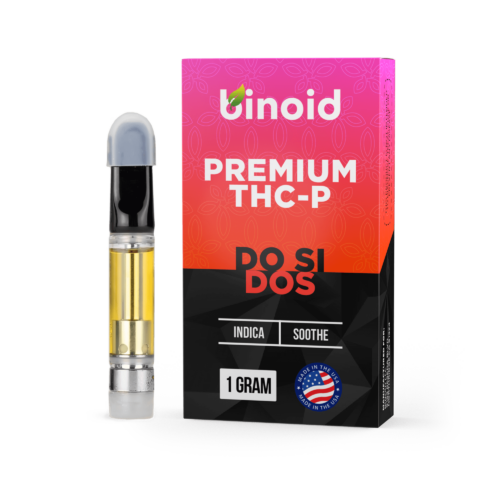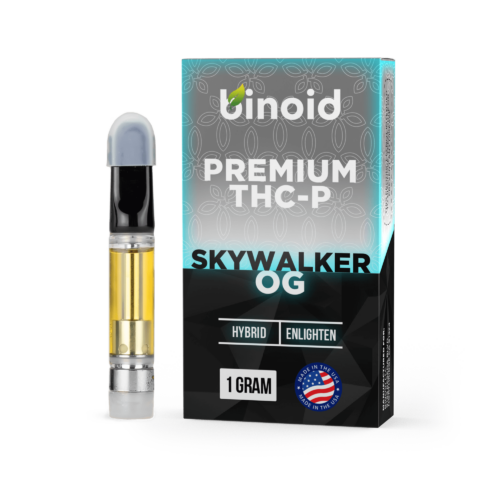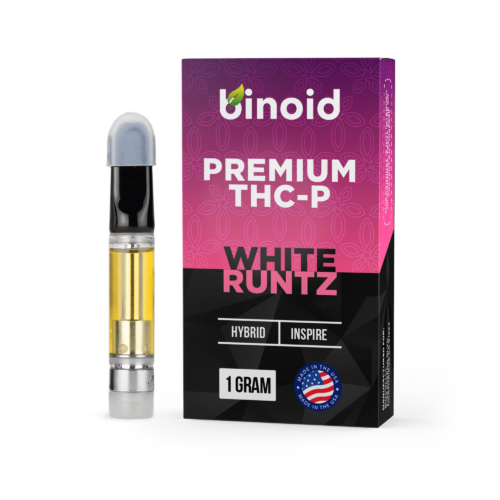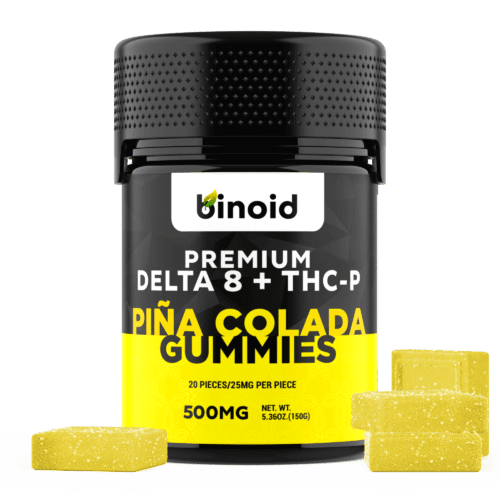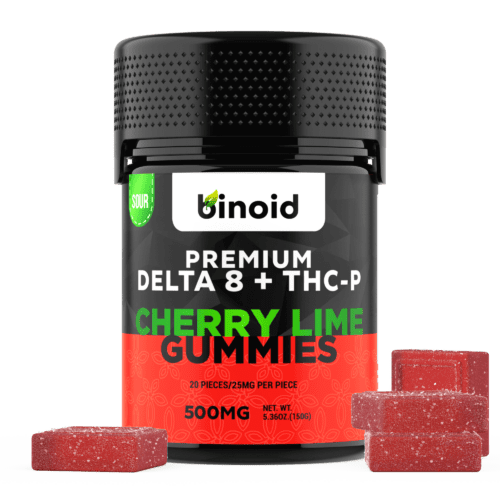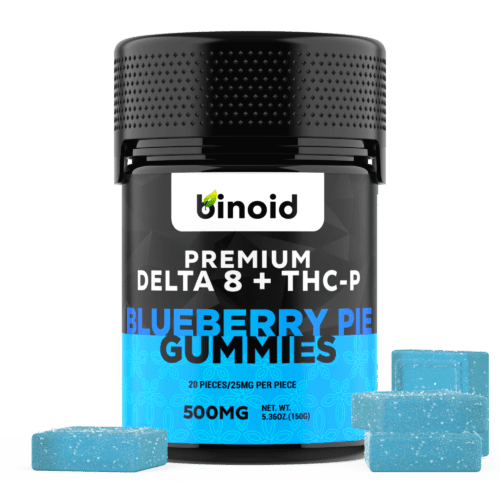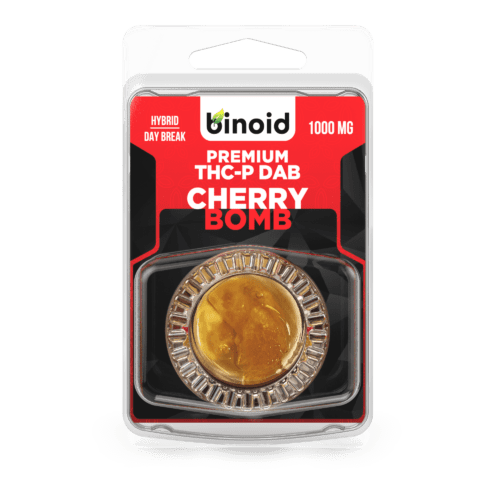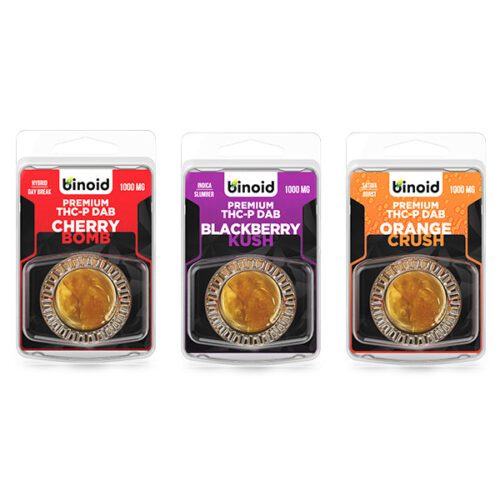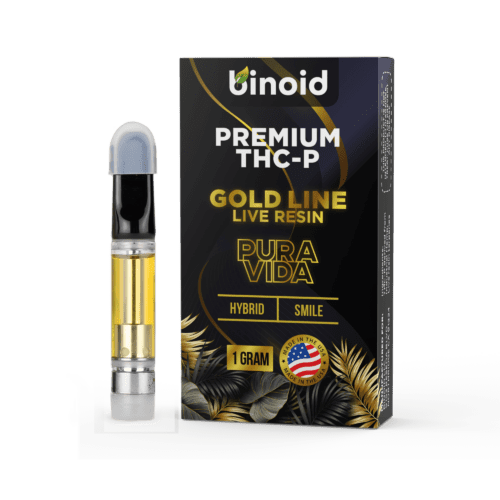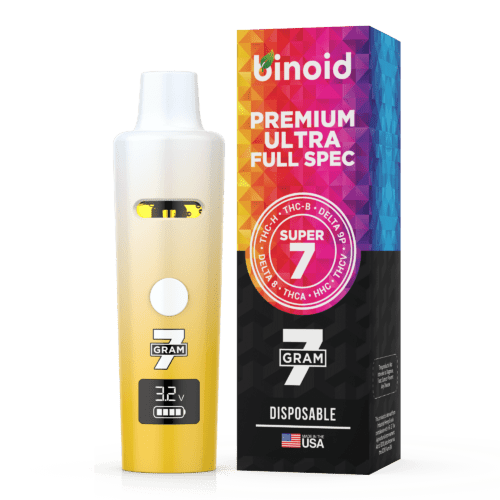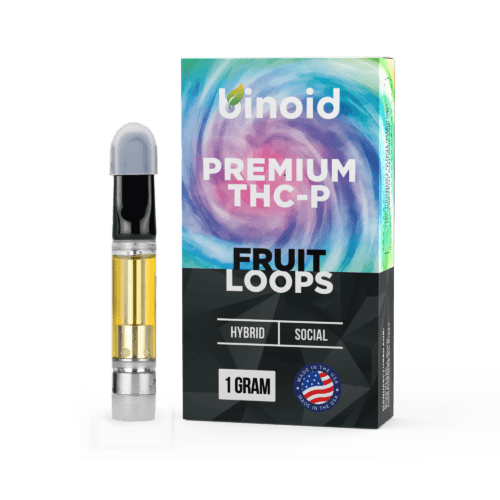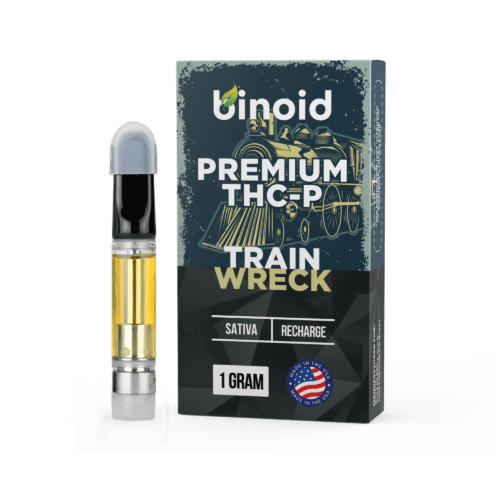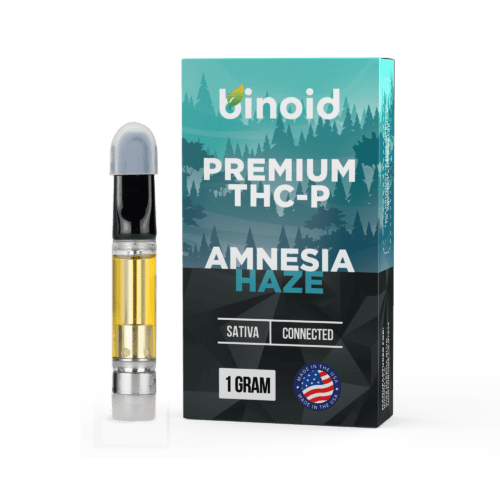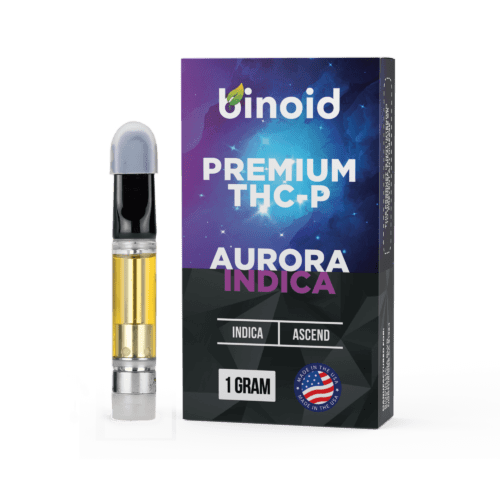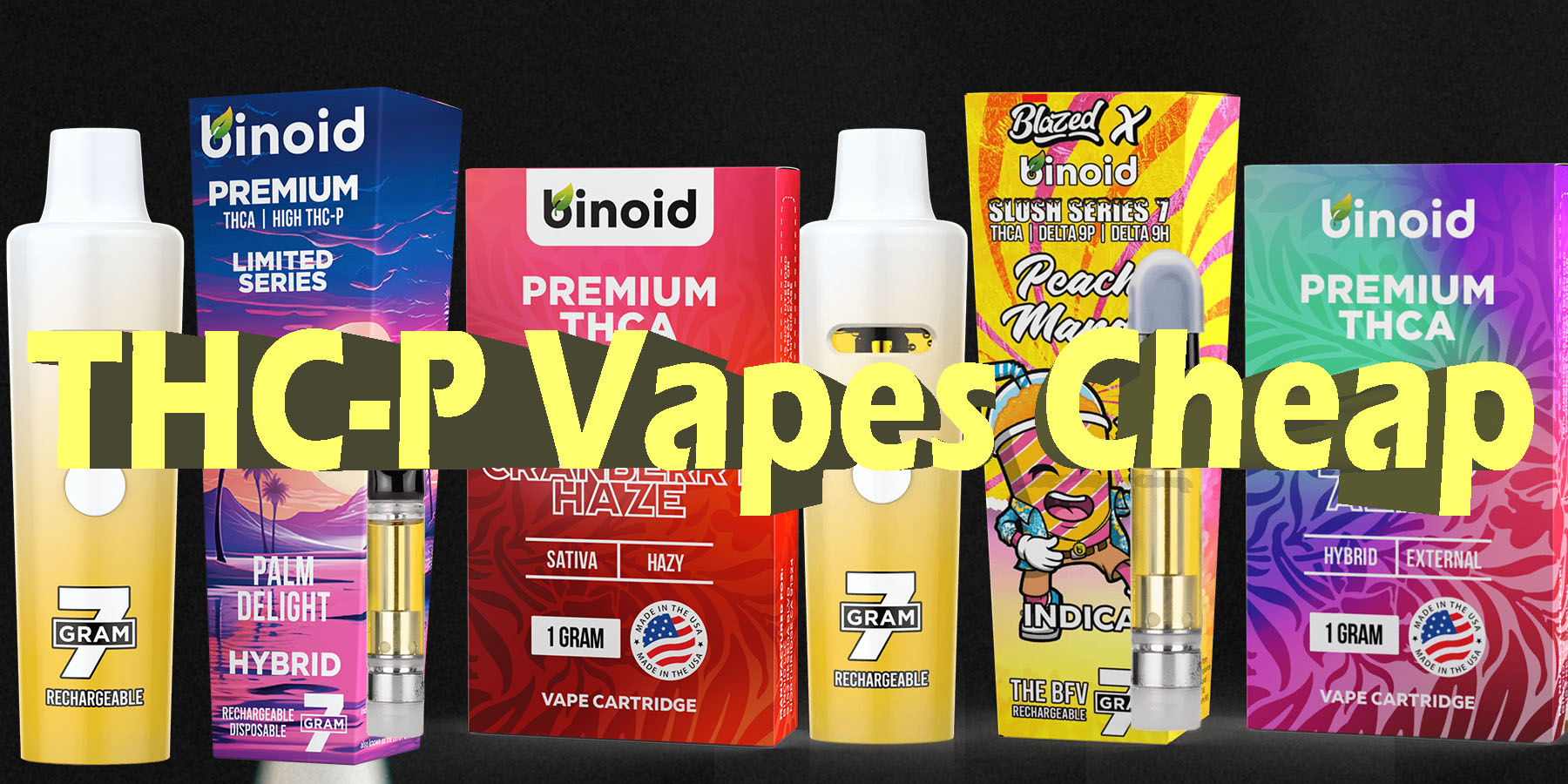
THC-P Vapes and Gummies Cheap
Are you ready to explore the cutting edge of the cannabinoid universe? Perhaps you’ve encountered intriguing mentions of THC-P and its remarkable potency, and now you’re wondering if it’s possible to experience this novel compound without completely emptying your savings. Navigating the world of new and powerful cannabinoids requires knowledge and care, especially when seeking affordability. Join us as we delve into the landscape of THC-P, uncovering pathways to find it cheaply while prioritizing safety and quality on this potent journey.
To Buy THC-P Products Click Here
Recommended products
What is THC-P?
Tetrahydrocannabiphorol (THC-P) represents one of the most recent and fascinating discoveries in the vast family of naturally occurring cannabinoids found within the cannabis plant. Its identification was announced in late 2019 by a team of Italian researchers who were analyzing a specific cannabis cultivar (FM2). Unlike its famous relatives like Delta 9 THC or CBD, THC-P exists naturally only in extremely low concentrations, often undetectable without sophisticated analytical techniques.
What sets THC-P, which is also known as Δ9-tetrahydrocannabiphorol or Delta 9P for short, apart structurally from Delta 9 THC is the length of its alkyl side chain – THC-P possesses a seven-term chain, whereas Delta 9 THC has a five-term chain. This seemingly small molecular difference has profound implications for how the cannabinoid interacts with the human body’s endocannabinoid system (ECS).
The scientific excitement surrounding THC-P stems primarily from initial findings regarding its interaction with CB1 receptors, the primary target for psychoactive cannabinoids in the brain. Preliminary in vitro (laboratory) studies conducted by its discoverers suggested that THC-P might bind to the CB1 receptor with significantly higher affinity than Delta 9 THC – potentially over 30 times more effectively.
While lab binding affinity doesn’t always perfectly predict real-world psychoactive potency, this finding strongly indicates that THC-P could be substantially more potent than Delta 9 THC on a milligram-per-milligram basis. This potential for extreme potency underscores the importance of cautious exploration and precise dosing for anyone considering THC-P products. Further research is ongoing to fully understand its effects, metabolism, and safety profile in humans.
Due to its natural scarcity, the THC-P found in commercial products today is not typically extracted directly from cannabis plants in significant quantities. Instead, it is predominantly produced semi-synthetically, usually through chemical modification (isomerization or other processes) of more abundant cannabinoids derived from legally cultivated hemp, such as CBD. This production method places THC-P in a complex legal category.
While its precursor materials may originate from Farm Bill-compliant hemp, the chemical synthesis step leads to debate about whether the final THC-P product qualifies as “hemp” or falls under regulations governing synthetically derived substances or analogues. Consequently, the legality of Delta 9P varies significantly by state and jurisdiction, with many regions potentially restricting or banning its sale alongside other novel or synthesized intoxicating cannabinoids, necessitating careful verification of local laws.
Why Even Consider Purchasing THC-P?
Given tetrahydrocannabiphorol’s unique profile as a novel and potent cannabinoid, exploring the specific reasons one might choose to seek it out is important, particularly when keeping budget considerations in mind. Its distinct characteristics offer several compelling motivations for the curious and experienced consumer alike:
Potential for Exceptional Potency: The defining characteristic attracting significant interest is THC-P’s reported high potency, suggested by scientific research indicating a much stronger binding affinity to key cannabinoid receptors compared to Delta 9 THC. For individuals seeking profound intensity in their experiences or those who find conventional THC effects underwhelming due to high tolerance, THC-P offers the possibility of achieving significant euphoria, relaxation, or altered perception with potentially much smaller quantities.
Novelty and Unique Subjective Effects: As a cannabinoid identified relatively recently and new to the consumer market, THC-P provides an opportunity for exploration beyond more common options. Users interested in discovering the diverse spectrum of cannabis compounds may be drawn to THC-P specifically to experience its potentially unique subjective qualities. Anecdotal reports sometimes suggest nuances in the feeling of bliss or the quality of relaxation that differ from more familiar cannabinoids.
Efficiency in Achieving Desired States: Stemming directly from its high potency, THC-P allows for the possibility of achieving significant effects with minimal consumption. This efficiency can be appealing to users who prefer smaller doses or who value achieving their desired level of relaxation or euphoria quickly and with less material, potentially offering a different kind of value calculation based on effect per unit consumed.
Exploring Advanced Cannabinoid Frontiers: For enthusiasts deeply interested in cannabinoid science and the cutting edge of available compounds, THC-P represents a frontier. Seeking it out is part of a journey to understand the effects and potentials of lesser-known but powerful naturally derived (or semi-synthesized from natural precursors) molecules within the broader cannabis family, pushing the boundaries of personal cannabinoid experience.
Potential for Accessibility (Legally Dependent): While its legal status is complex and varies greatly, THC-P originates from hemp precursors, placing it within the potentially accessible hemp-derived market in some jurisdictions where it hasn’t been specifically restricted. This potential accessibility (compared to state-regulated marijuana systems) can be a motivating factor for consumers in certain areas seeking potent cannabinoid experiences through available channels (always requiring strict verification of local laws first).
How to Choose Cheaper THC-P
Selecting affordable THC-P requires navigating a landscape where extreme potency, complex production methods, and varying legality demand extraordinary diligence. Finding true value hinges on looking far beyond the price, focusing instead on verifiable safety, accurate potency information, and trustworthy sourcing. When evaluating cheaper THC-P options, prioritize these fundamental factors to make a responsible and informed choice:
Comprehensive Certificate of Analysis (COA) Verification: This is the absolute most critical factor, especially for a potent, often semi-synthesized cannabinoid like THC-P. Demand readily accessible, recent, batch-specific COAs from accredited third-party labs before any purchase. Scrutinize these reports meticulously to:
Confirm the precise THC-P potency (often listed in micrograms or single milligrams).
Verify the Delta 9 THC level is compliant (under the 0.3% federal limit for hemp products).
Check the full cannabinoid profile to understand exactly what’s present.
Ensure thorough purity and safety screening for residual solvents, pesticides, heavy metals, mycotoxins, and other contaminants. Missing, incomplete, or questionable COAs are immediate disqualifiers for any THC-P product, particularly budget options.
Brand Reputation and Unwavering Transparency: Given the heightened risks associated with THC-P’s potency and production, only consider purchasing from highly reputable, established brands known for their commitment to safety, transparency, and quality control. Extensively research the brand’s history, operational standards, and customer feedback via independent reviews and forums. Choose companies that are open about their sourcing, manufacturing processes, and testing protocols – transparency builds trust, which is paramount here. Avoid unknown entities or those making unsubstantiated claims, especially when offering suspiciously low prices.
Cost Per Unit of Actual THC-P: To make meaningful value comparisons between products, you must calculate the cost based specifically on the amount of verified THC-P present. Determine the price per milligram (mg) or even microgram (mcg) of THC-P ($ Total Price ÷ Total mg/mcg of THC-P). This allows for an accurate assessment across different product sizes and claimed potencies, helping you identify which options genuinely offer more THC-P for your money, rather than just appearing cheap overall due to containing minuscule amounts.
Realistic Potency and Intended Use: Consider the extreme potency when evaluating price and value. An incredibly cheap product containing a relatively high amount of THC-P per unit might actually be poor value if that dose is far stronger than desired or leads to an overwhelming experience. Assess what constitutes a suitable (likely very low) dose for your individual tolerance and experience level. Sometimes a product with a lower, accurately verified THC-P content, even if slightly more expensive per milligram, represents better practical value by allowing for more controlled and appropriate dosing.
Source Material & Production Information: While details may be limited, look for any available information regarding the sourcing of the hemp precursors and the general production standards employed. Brands committed to quality, even in their value lines, may provide some assurance about using clean starting materials and controlled conversion/purification processes. This information, coupled with strong lab results, adds another layer of confidence when selecting more affordable options.
By carefully weighing these factors above, you can make better informed decisions when seeking cheaper THC-P, significantly increasing your likelihood of finding safe, effective, and genuinely valuable products that fit your budget.
Recommended products
What Types of THC-P Products Can Someone Buy Cheap?
Exploring the world of tetrahydrocannabiphorol often means encountering it as a potent addition to familiar product types, rather than a standalone ingredient, especially when seeking affordable options. Because pure Delta 9P is expensive and incredibly strong, manufacturers typically add trace amounts to other cannabinoid bases to enhance effects significantly without drastically increasing the overall product cost. Finding “cheap” THC-P products, therefore, involves identifying well-made, accurately dosed blends where value meets verified potency, such as:
Vape Cartridges: This is a dominant format for THC-P delivery in the affordable hemp market. Expect cartridges typically filled with a base distillate like Delta 8 THC or HHC, to which a small but impactful percentage of THC-P (often ranging from trace amounts up to maybe 5%) is added. This blend aims to provide the familiar effects of the base cannabinoid but with a significant boost in intensity, duration, or overall psychoactive depth attributed to the THC-P. Affordable options are plentiful online due to competition, but meticulous COA scrutiny is non-negotiable to verify the exact low percentage of THC-P, ensure Delta 9 compliance, and confirm the absence of harmful contaminants or cutting agents. Value comparison should consider the base oil quality, hardware reliability (cheap carts can fail), and the verified THC-P content per dollar.
Disposable Vapes: Offering maximum convenience, THC-P disposable vapes contain the same type of potent blends found in cartridges (e.g., Delta 8 + THC-P, THCA + THC-P, or even HHC + THC-P) in an all-in-one unit. Their ease of use makes them popular, and many affordable options exist online. When seeking value, consider the total oil volume, the specific cannabinoid ratios claimed (and verified by COAs, especially the tiny THC-P amount), battery life, and overall device construction quality – cheaper disposables may use inferior hardware prone to clogging or early failure. As with cartridges, rigorous lab report verification is paramount for safety and accurate dosing given the potency involved.
Wax Dabs (Concentrates): While pure THC-P concentrate is exceptionally rare and costly, affordable “THC-P dabs” usually consist of a base concentrate like Delta 8 wax or HHC budder that has been infused with a measured amount of THC-P distillate. This allows experienced users who prefer dabbing to access THC-P’s enhanced effects. Finding affordable options means evaluating the quality and price of the base concentrate while demanding COAs that clearly quantify the added THC-P and confirm purity, especially screening for residual solvents from the base concentrate’s production. The cost-effectiveness comes from the potency – a small dab of such an infused concentrate can provide very strong effects.
Edibles: This category requires extreme caution due to THC-P’s potency and the delayed onset of effects. Affordable THC-P edibles invariably contain very low doses per piece, often just 1-2 milligrams or even measured in micrograms, typically blended with Delta 8 or compliant Delta 9 THC.
Gummies: The most common THC-P edible format. Affordable options are widely available online, often sold in multi-count jars. Value is determined by comparing the cost per milligram (or microgram) of verified THC-P across the entire package. Brands offering cheaper gummies must have transparent COAs confirming the precise, low THC-P dose per piece alongside other ingredients and purity checks. Start with a very small fraction of a single gummy.
Candies: Hard candies or other confectionaries infused with low doses of blended THC-P might also be found affordably. The cost per piece may be low but verify the total THC-P content per package via COAs to assess true value. Dosing caution remains critical.
Baked Goods: Less frequent but possible, affordable cookies or brownies could be infused with precise, low amounts of THC-P blends. Verify dosage per serving extremely carefully through lab reports, as inconsistent infusion is a risk with baked goods. Affordability depends on base ingredients and verifies potency.
Tinctures: Provide a method for potentially microdosing or carefully controlling the intake of this potent cannabinoid, usually featuring THC-P blended into a carrier oil alongside other cannabinoids like Delta 8 or CBD. Affordable tinctures will contain a relatively low total amount of THC-P per bottle (e.g., perhaps 10-50mg total THC-P in a 30ml bottle also containing 1000mg of Delta 8). Value lies in the cost per milligram of verified THC-P across the whole bottle. Check COAs diligently for accurate quantification and purity.
Capsules: Supplying tasteless, pre-measured doses, affordable THC-P capsules follow the same principle as edibles – containing very low, precisely measured amounts of THC-P (e.g., 1mg or less), typically blended with other cannabinoids. Buying larger bottles (e.g., 30 or 60 count) usually offers better value per capsule and per milligram of THC-P. Ensure COAs from reputable brands confirm the stated low dosage and overall purity.
Flower (Infused Hemp Flower): It is crucial to understand that “THC-P Flower” is not cannabis naturally high in THC-P. It is always hemp flower (CBD, CBG, or occasionally THCA dominant) that has been infused or coated with a distillate containing THC-P, almost always blended with Delta 8 or other cannabinoids. Finding cheap options depends on the quality of the base hemp flower (outdoor being cheapest, indoor most expensive) and the amount and quality of the THC-P infusion applied. Demand COAs that test the finished infused flower to verify the THC-P potency (which can be inconsistently distributed) and screen for contaminants and potentially harmful solvents used in the infusion process. Be highly skeptical of vague claims or untested infused flower.
Potentially Buying Certain THC-P Products Cheap That Also Use Cannabis Concentrates
The intersection of potent novel cannabinoids like THC-P and premium cannabis concentrates such as Live Resin or Live Rosin presents an interesting, albeit typically high-end, product category. Finding such combinations cheaply requires understanding market dynamics and potential compromises.
Now, it’s conceivable that a manufacturer might use Live Resin, prized for its rich terpene profile derived from fresh-frozen cannabis, as the base for a vape cartridge or even an infused pre-roll. To this flavorful and aromatic base, a small, precisely measured amount of THC-P distillate could be added to dramatically enhance the psychoactive potency. While the Live Resin component inherently increases production costs compared to standard distillate, competitive pressures or promotional offers from certain brands might make such potent, flavor-forward THC-P + Live Resin vapes available at a price point considered affordable relative to their intense effects and premium flavor profile, offering significant value for discerning users.
Similarly, incorporating Live Rosin, the pinnacle of solventless extraction known for its purity and true-to-plant flavor, into a blend containing THC-P would typically result in a top-shelf, expensive product. Live Rosin production is labor-intensive, and yields are often lower than solvent-based methods. However, one might occasionally find affordable avenues, perhaps through smaller batch producers, introductory pricing, or products using specific grades of Live Rosin as a base for a vape oil or specialized edible formulation, into which THC-P distillate is carefully blended.
While not “cheap” in absolute terms, a competitively priced Live Rosin product enhanced with the potent effects of THC-P could represent considerable value for connoisseurs seeking the ultimate combination of solventless purity, exquisite flavor, and profound potency, provided comprehensive COAs verify both the cannabinoid profile (including the precise THC-P amount) and the purity of the rosin base.
The challenge in finding these combinations cheaply lies in the inherent cost of both premium concentrates and THC-P itself. Manufacturers aiming for affordability are more likely to use standard, less expensive distillates (like Delta 8 or HHC) as the base for THC-P blends. Therefore, products genuinely featuring high-quality Live Resin or Live Rosin and a verified amount of THC-P will likely carry a price reflecting the premium ingredients. Consumers might find “affordable” versions where the amount of Live Resin/Rosin is minimal, or where the “live” aspect is questionable marketing rather than genuine fresh-frozen extraction.
Therefore, while theoretically it is possible to find special deals or value-oriented brands offering THC-P combined with Live Resin or Live Rosin more affordably than expected, skepticism is warranted. Thoroughly investigating the brand’s reputation regarding concentrate quality, demanding detailed COAs that verify both the base concentrate type and the specific THC-P content, and understanding that true premium ingredients command higher prices are all crucial steps. The most common affordable THC-P products will typically utilize more economical base cannabinoids rather than expensive live concentrates.
It’s also worth noting that the terms “Live Resin” and “Live Rosin” themselves are sometimes used loosely or inaccurately in the less regulated hemp market. A product advertised cheaply as “THC-P Live Resin” might simply be standard distillate with added botanical or even cannabis-derived terpenes designed to mimic a live resin flavor profile, rather than containing actual concentrate extracted from fresh-frozen material. This further underscores the absolute necessity of relying on reputable brands known for transparency and accurate lab testing, rather than just attractive marketing terms or low prices, when exploring potential combinations of THC-P and true cannabis concentrates.
Ultimately, seeking the synergistic potential of THC-P‘s intense potency combined with the rich sensory experience of Live Resin or the pure essence of Live Rosin is an exciting prospect for experienced users. While dedicated searching during sales events or exploring offerings from up-and-coming craft producers might yield options that feel affordable relative to the premium experience offered, budget-conscious buyers should generally expect such combinations to be priced significantly higher than standard THC-P blends. Prioritizing verified quality and accurate labeling from trusted sources remains the most important consideration when navigating this high-end intersection of the cannabinoid market.
Recommended products
Potentially Buying THC-P Products Cheap That Combine One or More Cannabinoids
While THC-P can be found in specialized products, its intense potency and cost often lead manufacturers to incorporate it into affordable blends, most commonly found in vapes, gummies, and tinctures, rather than selling it as a primary standalone cannabinoid.
One common approach involves blending tetrahydrocannabiphorol with non-intoxicating cannabinoids readily available from hemp. For instance, CBD might be included in budget-friendly vape oils or tinctures aiming to potentially create a more balanced effect profile or temper the sheer intensity of THC-P for some users, leveraging CBD’s widespread availability and low cost.
Similarly, CBG could be formulated into affordable vapes or tinctures to add unique subtle qualities often marketed toward focus, differentiating product lines without significantly raising prices. In blends geared towards relaxation, especially tinctures or specific vape formulations, CBN might be added alongside THC-P. Less frequently, CBC could be part of broader-spectrum affordable tincture formulas. Utilizing these non-intoxicating compounds allows brands to craft varied, potentially more approachable, and cost-effective vape, gummy, and tincture options featuring the potent enhancement of THC-P.
Turning to psychoactive combinations, Delta 8 THC is arguably the most frequent partner found alongside THC-P in affordable vape cartridges, disposables, and gummies. Given Delta 8’s own psychoactive properties, wide availability, and cost-effectiveness, blending it with a small, potent amount of THC-P allows manufacturers to create products that offer a significantly intensified experience compared to Delta 8 alone, often aiming for a robust, potentially more body-centric feeling that appeals to many seeking strong effects at a value price point. This combination is a mainstay in the competitive online market for potent hemp-derived products.
Other psychoactive blends target more specific experiential nuances within affordable vapes, tinctures, and sometimes gummies. Cannabinoids like Delta 10 THC or THCV, often associated with more uplifting or energizing sensations, might be blended with THC-P in formulations designed for daytime use or creative pursuits, offering a different character than Delta 8/THC-P blends. The rarer THCM could potentially be used similarly. In some competitively priced vapes, gummies, or tinctures, additional compliant Delta 9 THC (if derived from hemp and within legal limits) or Delta 11 THC might also be included alongside THC-P simply to bolster the overall THC profile and perceived potency affordably.
Finally, targeting experienced users seeking maximum intensity, the most potent affordable blends, predominantly found in vape oils for carts and disposables, combine THC-P with other powerful novel cannabinoids. Formulations featuring HHC (known for its strong effects and unique legal standing) or its potent variants (HHC-O, HHC-P, HHCP-O) alongside THC-P are common in the high-potency vape market. Similarly, blends incorporating other potent THC analogues like THC-B, THC-H, or THC-JD, or the compound PHC, are designed to deliver profoundly intense euphoria or relaxation, far exceeding standard THC effects.
Market competition often makes even these powerful vape blends relatively accessible price-wise compared to equivalently potent products from licensed dispensaries, offering extreme impact for users prioritizing intensity within the affordable hemp derivative space.
Where to Buy THC-P Cheap
Given THC-P‘s novelty, extreme potency, typical semi-synthetic production, and complex legal status, finding reliable and affordable sources requires careful navigation. The options differ significantly from those for more established cannabinoids:
Licensed Dispensaries: State-licensed marijuana dispensaries primarily focus on cannabinoids derived directly from marijuana under state regulations (mostly Delta 9 THC, CBD, etc.). It is extremely unlikely that you will find THC-P products regularly stocked or legally sold in these dispensaries. State cannabis programs typically have strict rules about which cannabinoids are permitted, often excluding novel, semi-synthetic, or highly potent compounds like THC-P, or those not naturally abundant in the plant, unless specific regulations allow them (which is rare currently). Even if permitted theoretically, the focus remains elsewhere, making dispensaries an impractical source for THC-P, especially affordable options.
Licensed Suppliers/Specialty Stores: Physical retail stores specializing in hemp-derived products are a more likely place to encounter THC-P, typically within blended products like vapes or edibles. However, availability and legality are highly questionable and vary dramatically by location. Many states and localities have banned or restricted THC-P specifically, alongside Delta 8 and Delta 10, due to its intoxicating nature and semi-synthetic production. You must verify your local laws carefully before attempting to purchase THC-P from these stores. If available, prices will generally be higher than online due to retail overhead. Furthermore, quality control is a major concern; rigorously vetting the brand and demanding verifiable COAs confirming THC-P content, D9 compliance, and purity is absolutely essential, as oversight is less stringent than in dispensaries. Finding safe, legal, and cheap THC-P in these stores requires significant caution and research.
Online Retailers: The primary marketplace where THC-P products are found is online, sold by brands specializing in hemp-derived cannabinoids, like Binoid. Numerous online vendors offer THC-P blended vapes, edibles, tinctures, and infused flower. Intense competition means this channel generally offers the most competitive pricing and the widest selection of THC-P blends. Reputable online retailers provide easy access to Certificates of Analysis (COAs), which are critically important for THC-P to verify the extremely low dosages, confirm Delta 9 compliance, and ensure purity from contaminants or residual solvents. However, the online space demands maximum diligence. Only buy from established, highly reputable brands known for transparency and rigorous testing. Read independent reviews extensively. Scrutinize COAs meticulously. Most importantly, confirm that purchasing and shipping THC-P products is legal in your specific state and locality, as restrictions are very common. While often the source of the cheapest options, buying potent, synthesized cannabinoids like THC-P online requires prioritizing safety and legality above all else.
Online Wholesalers: Some wholesalers dealing in bulk hemp distillates and finished products might offer THC-P distillate (likely heavily diluted) or THC-P blended products in large quantities. This could potentially offer the lowest cost per unit/milligram for consumers meeting very high minimum order requirements. However, this is a niche option requiring significant upfront investment and extremely careful vetting of the supplier’s quality control, testing protocols (especially for purity and accurate THC-P concentration in bulk), and legal compliance. It is generally not practical for average consumers seeking affordable finished THC-P products.
Note: Gas stations, convenience stores, sketchy head shops, flea markets, other marketplaces like eBay, Facebook Marketplace, or Craigslist – just don’t even try. It might seem convenient, and the prices might look low, but these places are notorious for selling untested, mislabeled, potentially unsafe, or even illegal products. They lack the expertise and oversight needed for cannabinoid products. The incredibly low price often directly reflects a complete absence of quality control. Protect your health and wallet by avoiding these outlets entirely for THC-P purchases.
Recommended products
Is Buying THC-P Cheap Always Better?
When dealing with a cannabinoid as potent and unique as THC-P, the temptation to grab the cheapest available product can be strong, but it carries significantly heightened risks compared to more common cannabinoids. The mantra “cheaper is always better” is particularly dangerous territory with THC-P. While finding affordable options is possible, the extremely low price point often achieved in the less-regulated hemp market can be a major red flag, potentially indicating severe compromises in safety, accurate dosing, legality, and overall product quality. Prioritizing verified quality and safety over minimal cost is not just advisable with THC-P; it’s essential.
The foremost concern with unusually cheap THC-P products is safety and purity. Commercial Delta 9P is typically made through chemical processes applied to hemp precursors. If these processes are conducted improperly, without adequate purification steps, the final product can contain harmful residual solvents, unreacted starting materials, or unknown chemical byproducts. Furthermore, the base hemp material could contain pesticides or heavy metals.
Reputable manufacturers invest substantially in clean synthesis methods, multi-stage purification, and, critically, comprehensive third-party lab testing (COAs) to screen for these potential contaminants. These vital safety measures add cost. Rock-bottom prices strongly suggest these steps may have been skipped, potentially exposing users to dangerous substances – a risk amplified by THC-P’s potency, where even small amounts of product are consumed.
Accurate dosing is another critical issue intertwined with price and quality. Because THC-P is thought to be many times more potent than Delta 9 THC, precise formulation and verification are paramount. A few milligrams, or even micrograms, can have substantial effects. Cheap products from less scrupulous vendors may suffer from inaccurate labeling or inconsistent batch production (“hot spots”).
Consuming even slightly more THC-P than intended due to poor quality control could lead to overwhelmingly intense and unpleasant psychoactive experiences. Paying a bit more for a product from a trusted brand with verifiable COAs confirming the exact, low concentration of THC-P provides crucial control over dosing and helps prevent unexpectedly strong reactions, making it inherently better value than a cheap but unpredictably potent product.
Legality and compliance also factor in. Cheap THC-P products might be priced low because they fail to meet the <0.3% Delta 9 THC limit for hemp products, or they might be sold in jurisdictions where THC-P itself is explicitly banned. Purchasing non-compliant or illegal products, regardless of price, carries legal risks. Reputable brands invest in ensuring their products meet federal Delta 9 limits (verified by COAs) and typically avoid shipping to states where THC-P is restricted. Choosing a compliant, legally sourced product, even if slightly more expensive, avoids potential legal entanglements and supports responsible industry practices.
Finally, the overall product quality contributing to the experience can be lacking in the cheapest options. Low-grade base cannabinoids in blends, artificial or harsh flavorings, poor quality vape hardware that fails or leaks – these can all detract significantly from the experience, even if the THC-P itself provides potency. A slightly more expensive product using better ingredients and reliable hardware often delivers a much more enjoyable and dependable experience. With THC-P, “better” unequivocally means prioritizing verified safety, accurate low dosing, legal compliance, and reliable quality from a reputable source, rather than simply chasing the lowest possible price tag.
The Importance of Properly Storing Cheaper THC-P Products
Given the exceptional potency of THC-P and the fact that it’s often found in blends, properly storing your THC-P products – even the affordable ones – is critically important for maintaining their integrity, ensuring accurate dosing, and promoting safety. Environmental factors like light, heat, and air can degrade cannabinoids over time, potentially altering the potency and effects profile of the blend. Moreover, due to the strength of THC-P, preventing accidental ingestion by children or pets, or mix-ups with less potent products, requires careful and secure storage practices. Protecting your purchase preserves its value and ensures a predictable and safe experience when you choose to use it. Here’s how to best store common THC-P product formats:
Storing THC-P Vape Cartridges: Keep THC-P vape cartridges stored upright to prevent oil leakage and help keep the wick saturated properly, avoiding clogs. Store them in a cool, dark place at a stable room temperature. Avoid direct sunlight and heat sources, which can degrade the cannabinoids (including the small amount of THC-P and the base oils like Delta 8) and potentially damage the cartridge hardware or cause leaks. Extreme cold should also be avoided as it can thicken the oil. Replacing protective caps on the mouthpiece and threading helps keep out dust and minimize air exposure.
Storing THC-P Disposable Vapes: Treat disposable vapes containing THC-P blends similarly to cartridges: store upright if possible, in a cool, dark location away from temperature extremes. Heat can damage the integrated battery and degrade the oil, while extreme cold can affect performance. Since the unit is self-contained, protecting it from physical damage (drops, impacts) is important for ensuring it functions correctly throughout its lifespan. Keep disposables clearly labeled and separate from non-THC-P vapes due to potency differences.
Storing THC-P Edibles: Store THC-P edibles in their original, clearly labeled, child-resistant packaging whenever possible, or transfer them to a similar airtight container that is also clearly marked with its potent contents. Keep them in a cool, dark, and dry place to prevent melting, sticking, or degradation of cannabinoids. Heat and light are the main enemies. Ensure they are stored securely out of reach of children and pets due to the high risk associated with accidental ingestion of even a small amount of THC-P.
Storing THC-P Tinctures: Keep THC-P tincture bottles stored upright and tightly sealed to prevent leaks and oxidation. A cool, dark environment like a cupboard or medicine cabinet (if secure) is ideal. Avoid exposure to direct light or heat, which can degrade the THC-P and other cannabinoids in the blend, as well as the carrier oil. Clear labeling indicating the high potency is crucial for safety.
Storing THC-P Capsules: Store THC-P capsules in their original sealed and labeled bottle in a cool, dark, dry place. Avoid humidity, which could compromise the capsule shells. Keeping them clearly marked and secured away from other supplements or medications is vital due to the potency per capsule.
Storing THC-P Infused Flower: Treat THC-P infused flower like potent cannabis flower. Store loose infused buds in airtight glass jars in a cool, dark place, potentially with a humidity pack (58-62% RH) to maintain freshness. Handle gently to preserve the infusion coating. Store infused pre-rolls in airtight tubes or small jars, protecting them from drying out and physical damage. Crucially, keep infused flower clearly labeled and separate from non-infused flower due to the significantly enhanced potency. Secure storage away from unintended users is paramount.
Storing THC-P Concentrates (Infused Dabs): For dabs blended or infused with THC-P, use small, airtight glass or silicone containers kept in a cool, dark place. If refrigerating for long-term storage, remember to allow the container to reach room temperature before opening to prevent moisture condensation. Clear labeling identifying the presence of THC-P and secure storage are essential due to the high concentration of potent cannabinoids.
Diligent storage practices for your cheaper THC-P products are non-negotiable. They preserve the product’s quality and potency while significantly contributing to safe and responsible use by preventing degradation, ensuring consistent dosing, and minimizing the risk of accidental exposure.
Experience Affordable and Effective THC-P Cheap Today!
The potent potential of THC-P is now within your sphere of exploration, offering unique avenues for profound experiences. You can confidently navigate the market, seeking options that deliver not only the intense effects associated with this cannabinoid but also tangible, budget-friendly value. Focus your search on reputable sources providing verified, accurately dosed products, allowing you to tap into Delta 9P ‘s power affordably and safely. Embrace the opportunity to discover this remarkable cannabinoid; choose wisely to find effective and genuinely cheap THC-P formulations that align with your quest for intense relaxation or euphoria, starting today.

